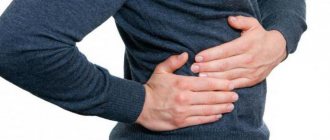Causes
If you don't feel full after eating, there may be several reasons for this. And it is important to understand what exactly is happening in your body in order to cope with the problem in the future.
- Wrong diet. All nutritionists recommend eating at least three times a day. And ideally – 5 or 6 times a day. But if you neglect snacks and eat 1 or 2 times a day, then even after a fairly hearty dinner you will feel hungry.
- Haste while eating. If a person tries to quickly satisfy his hunger and quickly absorbs food, then the receptors simply do not have time to inform the brain that the body is full. In addition, rapid absorption of food very often leads to overeating.
- Eating in a turbulent environment. It turns out that your brain switches to external stimuli, because of this you begin to get nervous and try to quickly cope with your portion of food. Also, due to excessive nervousness, your enzyme production decreases, so food is digested much less well.
- Excessive loads. But don't be afraid to play sports. Strong exercise only increases your appetite and this is normal. But it happens that after exercise you feel hungry all the time, then you should reconsider the intensity of your training or your diet.
- Drink small amounts of water throughout the day. We do not always recognize the body’s signals as accurately as possible, and it happens that we mistake thirst for real hunger. And if you feel hungry half an hour after lunch, a glass of water will help you eliminate this problem.
- Deficiency of microelements and vitamins. Many micro- and macroelements directly or indirectly participate in metabolic processes. Therefore, with a lack of these elements, disturbances occur in the digestion process, which leads to the fact that there is no feeling of fullness after eating. For example, with a lack of potassium and magnesium, a person develops a craving for salty and sweet foods.
- Diseases of the nervous system. With constant stress, the production of the hormone cortisol and norepinephrine increases. And their increased quantity leads to obesity and a constant desire to eat something.
- Diseases of the digestive system. Not all pathologies lead to a lack of feeling of fullness after eating. Most often, hunger is felt with rapid peristalsis, disruption of the mucous membrane in the intestines and insufficient amounts of enzymes in the organs of the digestive system.
- Sedentary lifestyle. In this case, a person does not expend all the energy he receives from food, and because of this, the body begins to make reserves. The stomach walls expand, so the body begins to require more and more food. If you live for a long time without physical activity, this can lead to dysfunction of the brain centers responsible for the feeling of fullness.
- Increased mental activity. The brain consumes large amounts of glucose, so it signals the body to replenish its reserves.
- Sleep disturbances. Scientists have long proven that the average person needs 8 hours of sleep. And those who sleep 4 to 6 hours are much more likely to feel malnourished, as they have insufficient production of the hormone leptin.
- Diabetes. It is worth checking for this disease for those whose rhythm of life has not changed, and at the same time there is a constant feeling of hunger, advises hudeem-bez-problem.ru. Most often, with diabetes, you will not only want to eat, but also feel thirsty.
- Disturbances in the hormonal system. Most often, this is an increase in ghrelin levels, a decrease in leptin, or an imbalance of sex hormones.
Signs of physiological and psychological hunger
Nausea during pregnancy
During pregnancy, a woman's body undergoes physiological changes that lead to a malfunction of the internal organs. There is a battle going on inside – the woman’s stunned immune system is trying to defend itself from an unknown “invader.” In biological terms, this is how the mother’s internal system perceives the unexpected invasion of the embryo.

The vast majority of women (within 90% of cases) experiencing pregnancy experience a period of constant lightheadedness and vomiting until the 14th week of pregnancy. After the fifteen-week mark, the discomfort most often goes away. This phenomenon in medical practice is not considered pathological, and does not signal deviations in the health of the mother and child.
To reduce these annoying attacks during pregnancy, you must strictly adhere to medical prescriptions: diet, eating more fresh vegetables, fruits with a high content of calcium, magnesium, iron. To regulate the production of enzymes, correct the feeling of hunger and nausea attacks, in our time there is a wide selection of medications (consultation with a supervising doctor is necessary), folk remedies that have always enjoyed constant success with our grandmothers (sauerkraut brine, water infusion of flax seed, water decoction of parsley ).
If you feel sick in the third trimester, even when the expectant mother is hungry, this is not normal and is most often explained by the fact that the grown fetus causes deformation of the abdominal organs of the pregnant woman. Among others, the liver suffers from noticeable contraction, showing indignation with attacks of nausea and vomiting.
Taking into account all the above factors, we can come to the following conclusion: if the alarming feeling of nausea does not interpret the symptom of the disease, and the medical examination carried out has not brought results, you should seriously think about a thorough, immediate revision of the irrational lifestyle.
How to distinguish physiological hunger from psychological
Quite often, people who are losing weight hear advice from a nutritionist to eat only when they feel true physiological hunger. But what is it, and how can it be distinguished from psychological hunger?
The main signs of physical hunger:
- appears after a certain time after eating, and at least 4 hours must pass;
- always appears gradually;
- characteristic processes occur in the stomach, rumbling can be heard;
- After eating you will feel full and satisfied.
False or psychological hunger has the following signs:
- appears at any time, even immediately after eating;
- want to eat when stressed or upset;
- may occur under the influence of factors such as the smell or beautiful appearance of food;
- occurs when you want to keep yourself busy while watching a movie or to escape from monotonous activities.
It is important for any person to understand why he wants to eat and how to get rid of psychological hunger.

If you want to eat, eat an apple, if you don’t want an apple, don’t want to eat
Medicines
Mezim forte
The feeling of hunger caused by insufficient production of enzymes is compensated by taking this drug. After taking the tablets, food is digested and absorbed completely, and severe nausea from hunger disappears.
The cost of Mezim forte is 200–215 rubles (20 tablets).
Essentiale forte
The medication is prescribed to people who experience nausea and hunger associated with liver disease. Phospholipids from soybeans help restore damaged areas of the organ by enhancing the regenerative ability of the liver. After a course of the drug, the detoxification function of the liver is normalized. The product is also effective in the initial stages of fibrosis and cirrhosis.
Price tag: 2,000 rubles for 100 tablets.
Omeprazole
Helps eliminate reflux and is used to treat peptic ulcers of the stomach and duodenum. A course of taking Omeprazole helps prevent the development of a hypersecretory state.
The cost of purchasing the product will be 50–70 rubles (a doctor’s prescription is required).
Porziola
A stomach filler, which artificially causes a feeling of fullness by stretching its walls, can relieve hunger for up to 4 hours. Products from this group are used exclusively for those who want to lose weight.
A standard of 10 capsules will cost 600–700 rubles.
Why do you feel full after eating?
Most often, the feeling of satiety disappears in those people who are trying to get rid of excess weight. Their body is already accustomed to receiving relatively large portions of food, most often junk food, and here it sharply reduces the amount of calories consumed. It will be possible to overcome this feeling only gradually, since the stomach stretches and contracts, but rather slowly. If the situation is very advanced, then surgical intervention is sometimes used.
First, try removing fatty foods from your diet and replacing them with dietary meat and complex carbohydrates. This way you can feel full for much longer, advises hudeem-bez-problem.ru. If this doesn't help, try getting tested for the diseases described above.
About the feeling of hunger that occurs in the middle of the night >>
Prevention methods
The best preventive measures are maintaining a healthy lifestyle and consistently following dietary recommendations. Basic rules for preventing morning heartburn and complications in the gastrointestinal tract:
- A balanced diet with sufficient supply of essential nutrients.
- Eliminating the harmful effects of alcoholic beverages and carbonated drinks.
- Maintaining a daily routine with adequate physical activity and physical activity.
- Maintaining a calm psycho-emotional state.
A prerequisite for effective treatment of heartburn is the exclusion of tobacco smoking, since nicotine irritates the gastric mucosa, provokes increased salivation and causes the formation of erosive lesions. This also applies to smoking mixtures, hookahs, cigars, and passive smoking.
Overeating due to lack of satiety
This condition, when a person cannot feel satiation, has a separate term - akoria. Why don't you feel full after eating? There are many reasons, which are described above. Lack of satiety can lead to constant overeating, and this condition will be dangerous for the human body. Main symptoms of overeating:
- weight fluctuations,
- sudden increase in body weight,
- flatulence and bloating,
- habit of eating food at any free time.
- depression due to constant hunger and weight gain.

Banana will give you a feeling of fullness and help digestion.
Constant feeling of hunger: causes, ways to eliminate constant feeling of hunger
The main reasons for constant hunger are:
- Increased mental activity;
- Excessive energy consumption as a result of intense physical activity;
- Malnutrition;
- Thirst;
- State of stress and depression;
- Hormonal imbalances, menstrual cycle disorders, the menstrual cycle itself;
- Psychological dependence syndrome on food.
One of the likely causes of a constant feeling of hunger is poor nutrition, in which the body feels a deficiency of vital elements: fats, proteins, carbohydrates, vitamins, fiber, microelements.
A constant feeling of hunger, the causes of which lie in regular increased mental activity, can be easily corrected by increasing the level of glucose in the blood. In this case, a constant feeling of hunger is provoked by the need of the brain, and not by the physiological need of the whole body. Other foods consumed to saturate the body with such a feeling of hunger will be ineffective. Without receiving sufficient glucose levels, the body will soon “demand” a new portion of food to replenish the missing elements. The best sources of glucose for the brain in this case will be starchy carbohydrates: rice, bread, other grain products, nuts, beans, potatoes, corn.
A constant feeling of hunger, the causes of which are psychological factors, is difficult to satisfy with regular meals. When identifying the dependence of a constant feeling of hunger on the psychological state, it is necessary first of all to eliminate the causes that provoke the hunger reflex.
During intense physical activity, the main sources of energy for the body are triglycerides (fats), glycogen and glucose, to replenish which the body needs low-calorie foods high in proteins and carbohydrates: boiled chicken, baked fish.
Elementary thirst can provoke a feeling of hunger, which can be quenched by a glass of still water that does not contain sugar.
The constant feeling of hunger is also influenced by the level of hormones produced by various body systems. These include:
- hormones of the hypothalamic-pituitary system (thyrotropin-releasing hormone, neurotensin, corticoliberin);
- sex hormones (estrogens, androgens);
- thyroid hormones (thyroxine, calcitonin, triiodothyronine);
- pancreatic hormones (insulin, pancreatic polypeptide, glucogan).
Fluctuations in hormonal levels during the menstrual cycle in women explain the constant feeling of hunger, the dissatisfaction of which is characterized by irritability, depression, and feelings of dissatisfaction.
What to do: advice from nutritionists
If you don’t feel full after eating, then first of all you should figure out the reasons. The easiest way to start is to determine whether your lifestyle has changed. Maybe you're not getting enough sleep or have increased the intensity of your workouts? Then it is enough to normalize your life and the problem should disappear by itself.
Next, if possible, check for diseases. In addition to the lack of feeling of satiety, other symptoms should be present in this case.
If you are currently on a diet, consult your nutritionist. Most likely, you will have to adjust your diet so that you have enough of all elements.
The most difficult thing to deal with is psychological hunger; in this case, nutritionists advise doing the following things:
- if hunger comes immediately after eating, then try chewing gum,
- to suppress hunger, drink a glass of water,
- if you know that you are starting to want to eat because of boring activities, try to occupy yourself with something more interesting,
- You should not store stocks of unhealthy food in the refrigerator, you will psychologically want to eat them,
- Using mint paste to brush your teeth helps a lot, when hunger sets in, your brain will think that you have eaten something,
- try to eat at least 5 times a day, but in smaller portions than usual.
What happens in the body during fasting
Doctors have long been against long breaks in eating; uncontrolled fasting is out of the question. The first system that is affected by abstaining from eating is the digestive system.
The human body is practically trained on reflexes. Every time it is time to eat, the organs of the gastrointestinal tract are prepared to accept and process foods:
- gastric juice is released;
- bile formation occurs;
- salivation begins.
Let's look at how heartburn appears on an empty stomach.
Saliva has a slight bactericidal effect and only envelops the food bolus, slightly breaking down carbohydrates, while gastric juice acts more aggressively. It includes:
- bicarbonates;
- hydrochloric acid;
- pepsinogen;
- pepsin;
- slime.
The latter forms a layer on the surface of the stomach that protects it from the effects of other components. Normally, all enzymes should be used to disinfect and process food. But in its absence, the surrounding tissue begins to split.
- The mucus layer is the first to be broken.
- Afterwards, the enzymes affect the surrounding organs: the esophagus, duodenum, and the stomach itself, causing their inflammation.
- Then hydrochloric acid begins to break down the deeper surrounding tissues, leading to erosions and ulcers.
Why does heartburn occur?
A burning sensation occurs when the esophagus is involved in the inflammatory process. Gastric juice is acidic, which irritates it. The lower part of the esophagus, bordering the stomach, is the lower esophageal sphincter. With frequent long-term fasting, hydrochloric acid gradually weakens this muscle, causing gastric juice to reflux into the esophagus. This is how heartburn appears during fasting.
If such situations occur rarely, the burning sensation may not bother the person. It’s another matter when there is no adequate nutrition for several days or weeks.
Not only hydrochloric acid leads to heartburn during fasting. Bile acids accumulate in the gallbladder to process fatty and protein-rich foods. If these do not enter the body, bile is secreted little by little in small portions. It can also affect the stomach and esophagus, causing those same burning pains behind the sternum.










